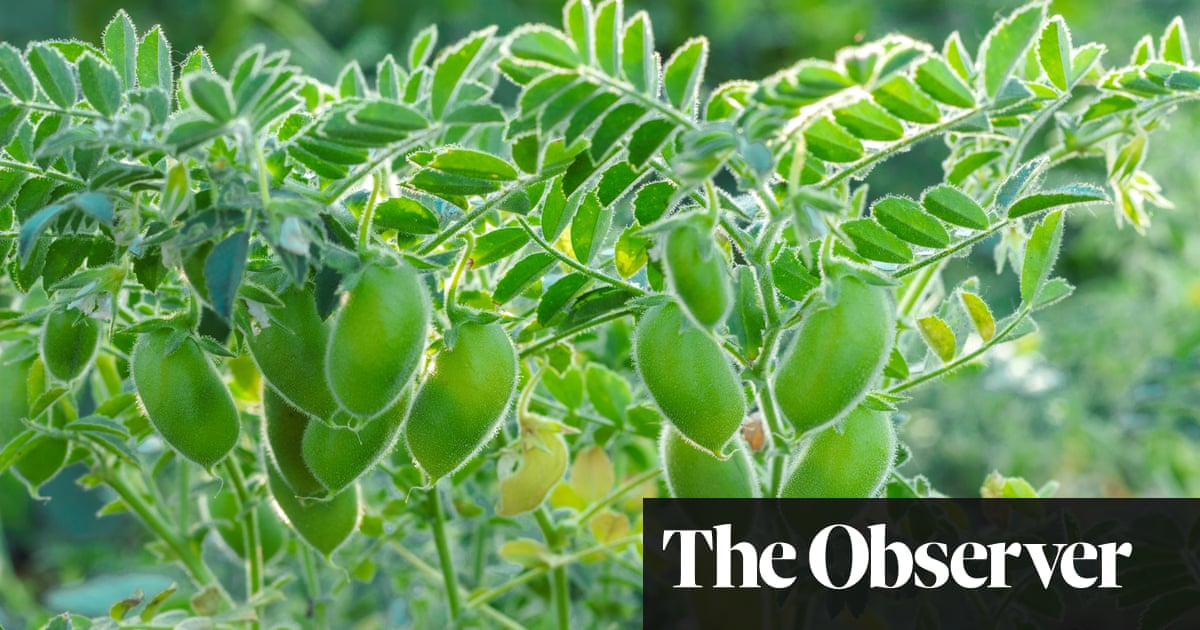|
UK soil breakthrough could cut farm fertiliser use and advance sustainable agriculture | Farming A biological mechanism that makes plant roots more attractive to soil microbes has been discovered by scientists in the UK. The breakthrough – by researchers at the John Innes Centre in Norwich, Norfolk – opens the door to the creation of crops requiring reduced amounts of nitrate and phosphate fertilisers, they say. “We can now think of developing a new type of environmentally friendly farming with crops that require less artificial fertiliser,” said Dr Myriam Charpentier, whose group carried out the research. Excess use of fertilisers has become a major ecological problem in recent years and has been linked to soil degradation, while run-offs from fields are causing major pollution in rivers where algae blooms spread across the water, and kill fish and other aquatic life. However, the research has uncovered a route that could lead to the development of crops that could reduce this problem by helping them scavenge nutrients from the soil more effectively – by gaining a little help from soil microbes. The basis of this approach is a process known as endosymbiosis, in which one organism exists within another in a mutually beneficial relationship. This activity helps some plants to scavenge nutrients from nutrient-poor soil using the assistance of microbes in natural settings. However, in agricultural settings, where fertilisers are used to boost yields, these disrupt the natural interaction between crops and microbes. The team led by Charpentier has announced that it has discovered a mutation in the legume Medicago truncatula which enhances partnerships with bacteria and fungi that supply the roots with nitrogen and phosphorus. This process improves the plant’s take-up of nutrients. Crucially, the team – whose research was recently published in Nature – showed the same gene mutation in wheat enhances similar partnerships in field conditions. This opens the door to the creation of wheat varieties that can exploit soil microbes to provide nutrients and so reduce the need to use large amounts of artificial inorganic fertilisers. “This discovery is created in a wheat variety that is non-GM,” Charpentier added. This means that plant breeders can use traditional breeding methods to develop varieties that possess the trait. after newsletter promotion The discovery is causing excitement because it opens the door to the use of endosymbiotic agents as natural alternatives to inorganic fertilisers for major crops. The team’s finding offered “great potential for advancing sustainable agriculture”, Charpentier told the Observer. Source link Posted: 2025-02-22 14:16:02 |
Sky Glass gen 2: Best TV packages including £144 discount
|
|
Pro-EU centrist wins Romanian presidential race over hard-right rival, data shows
|
|
WhatsApp will be blocked on some iPhones next month - check the full list now
|
|
Jamie Oliver's 'best' scone recipe produces 'crumbliest' results
|
|
How to buy cheap Coldplay tickets for 2025 tour | Music | Entertainment
|
|
Atlético Madrid v Real Madrid: Champions League last 16, second leg – live | Champions League
|
|
Slot backs Liverpool to maintain title edge on road with home comforts ahead | Liverpool
|
|
Upstate N.Y. tourism operators offering discounts to win back Canadians
|
|







